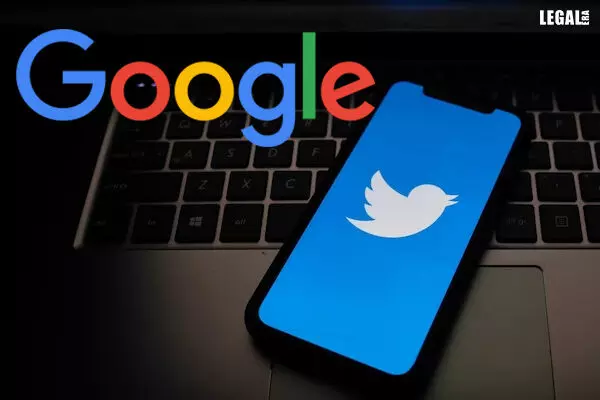- Home
- News
- Articles+
- Aerospace
- Artificial Intelligence
- Agriculture
- Alternate Dispute Resolution
- Arbitration & Mediation
- Banking and Finance
- Bankruptcy
- Book Review
- Bribery & Corruption
- Commercial Litigation
- Competition Law
- Conference Reports
- Consumer Products
- Contract
- Corporate Governance
- Corporate Law
- Covid-19
- Cryptocurrency
- Cybersecurity
- Data Protection
- Defence
- Digital Economy
- E-commerce
- Employment Law
- Energy and Natural Resources
- Entertainment and Sports Law
- Environmental Law
- Environmental, Social, and Governance
- Foreign Direct Investment
- Food and Beverage
- Gaming
- Health Care
- IBC Diaries
- In Focus
- Inclusion & Diversity
- Insurance Law
- Intellectual Property
- International Law
- IP & Tech Era
- Know the Law
- Labour Laws
- Law & Policy and Regulation
- Litigation
- Litigation Funding
- Manufacturing
- Mergers & Acquisitions
- NFTs
- Privacy
- Private Equity
- Project Finance
- Real Estate
- Risk and Compliance
- Student Corner
- Take On Board
- Tax
- Technology Media and Telecom
- Tributes
- Viewpoint
- Zoom In
- Law Firms
- In-House
- Rankings
- E-Magazine
- Legal Era TV
- Events
- Middle East
- Africa
- News
- Articles
- Aerospace
- Artificial Intelligence
- Agriculture
- Alternate Dispute Resolution
- Arbitration & Mediation
- Banking and Finance
- Bankruptcy
- Book Review
- Bribery & Corruption
- Commercial Litigation
- Competition Law
- Conference Reports
- Consumer Products
- Contract
- Corporate Governance
- Corporate Law
- Covid-19
- Cryptocurrency
- Cybersecurity
- Data Protection
- Defence
- Digital Economy
- E-commerce
- Employment Law
- Energy and Natural Resources
- Entertainment and Sports Law
- Environmental Law
- Environmental, Social, and Governance
- Foreign Direct Investment
- Food and Beverage
- Gaming
- Health Care
- IBC Diaries
- In Focus
- Inclusion & Diversity
- Insurance Law
- Intellectual Property
- International Law
- IP & Tech Era
- Know the Law
- Labour Laws
- Law & Policy and Regulation
- Litigation
- Litigation Funding
- Manufacturing
- Mergers & Acquisitions
- NFTs
- Privacy
- Private Equity
- Project Finance
- Real Estate
- Risk and Compliance
- Student Corner
- Take On Board
- Tax
- Technology Media and Telecom
- Tributes
- Viewpoint
- Zoom In
- Law Firms
- In-House
- Rankings
- E-Magazine
- Legal Era TV
- Events
- Middle East
- Africa
Twitter & Google Secured Big Win at U.S. Supreme Court in Internet Liability Cases

Twitter & Google Secured Big Win at U.S. Supreme Court in Internet Liability Cases
The tech-giants- Twitter and Google have secured big win at the U.S. Supreme Court, however the Court dismissed the big issue hovering over the cases, the federal law that shields social media companies from being sued over content posted by others.
In two separate cases, the Court deliberated the case in connection with families of terrorist attack victims claimed that Google and Twitter should be held accountable for aiding and abetting ISIS, which resulted in the death of their loved ones.
The case dates back to the incident when an ISIS-linked attacker opened fire at the Reina nightclub in the Ortakoy neighborhood of Istanbul, Turkey, on 1 January, 2017, killing at least 38 people, along with Nawras Alassaf. Hundreds of people had been enjoying New Year’s Day there when the incident took place.
The families of victims in both attacks asserted that the internet giants did not do enough to prevent their platforms from being used by extremist groups to radicalize and recruit people.
They proceeded to file a lawsuit under a federal law that allows Americans injured by a terrorist attack abroad to seek money damages in Federal Court.
Thereafter, the High Court had taken up the Google case to decide whether the companies' legal shield for the social media posts of others, contained in a 1996 law known as Section 230, is too broad.
The U.S. Court of Appeals for the Ninth Circuit ruled that most of the claims were barred by the internet immunity law.
After the legal allegations, Google defended itself by arguing that as per Section 230 of the Communications Decency Act, passed in 1996 states that internet service providers are stopped from being held accountable for third-party information uploaded on their websites.
However, the Supreme Court upheld that neither company had any underlying obligation to require the protections, avoiding becoming involved in the contentious Section 230 argument.
“We therefore decline to address the application of Section 230 to a complaint that appears to state little, if any, plausible claim for relief,” the Court wrote in an unsigned opinion.
On the other hand, in the Twitter case, conservative Justice Clarence Thomas wrote for a unanimous jury that the plaintiff’s claims came ‘far short of plausibly alleging that defendants aided and abetted the Reina attack.’
General Counsel of Google, Halimah DeLaine Prado, stated that the decision, “will reassure the countless companies, scholars, content creators, and civil society organisations who joined us in this case. We'll continue our work to safeguard free expression online, combat harmful content, and support businesses and creators who benefit from the internet.”
Palpably, the two rulings do not settle the legal dispute over Section 230’s of the Communications Decency Act, 1996 application. It is noteworthy to observe that Internet businesses of all sizes are shielded from liability under Section 230 for third-party content uploaded on their platforms.
The Supreme Court’s decision in October to review that ruling set off alarm at Google and other technology companies. “If we undo Section 230, that would break a lot of the internet tools,” Kent Walker, Google’s top lawyer, said in his statement.



